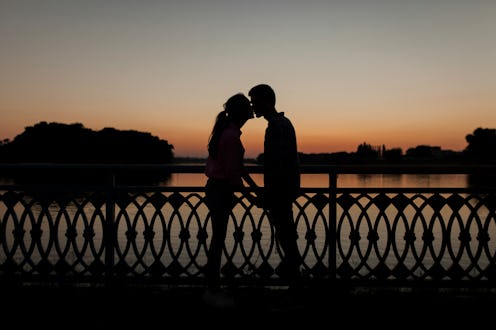Books
How Does An Author Experience Their Own Novel?

With each novel that I publish, one question has become of greater interest to me: how does an author experience their own novel? First there was Burning Embers, my debut novel. It was so precious to me that for a long time, I remained as connected to it as I was when I wrote it. Then came The Echoes of Love , and writing and publishing and marketing that novel so consumed me that Burning Embers had to step back a little. Next came my Andalucian Nights trilogy: Indiscretion , Masquerade and, in March 2017, Legacy , which took me from the African and Italian settings of my first books and immersed me in Spanish culture, history and landscapes.
All told, I have written nine novels, some of which are unpublished. The volume of works now dictates that no longer can I hold on to every word as I did with my debut novel: I have learned to write a book, and live that book during the writing, and then let it go and move on. The result is a shelf of books in my writing room that represent who I am and of what I dream, and they are fine companions. But they are books and they are meant to be read – and so sometimes I put down my pen and step away from my writing desk, and I choose a book from the shelf, take it out to the terrace, sit comfortably on a patio chair in the sunshine and read.
"I have learned to write a book, and live that book during the writing, and then let it go and move on. The result is a shelf of books in my writing room that represent who I am and of what I dream."
To read your own book is a complicated matter.
First, you have to turn off your inner editor, who will instinctively scrutinize the text, seeking weaknesses, and judge its merits. The book is done. It is published. You must accept it as it is.
Next you have to gently hush the awestruck voice in your mind that cries, "You wrote this! This is yours!" After so many years of dreaming to write, the thrill of having actually written never goes away.
Then it is a matter of trying to read the story, as any reader would. Invariably, however, this proves very difficult, because you are not just any reader: you are the story’s creator, and you understand the story and the subtext in a way that no one else can. You know what that little hint in Chapter 1 points towards; you know the truth of a misunderstood character; you know the denouement from every angle. As you read, you also recall heaps of background material that never made it into the final edit; you can quite quickly get lost in the story behind the story.
"After so many years of dreaming to write, the thrill of having actually written never goes away."
If you have managed to re-focus on the reading, you soon encounter another obstacle: instead of being transported as the reader into a scene, you are transported as the author into the time and place you wrote that scene. For many of the scenes in my novels I can recall exactly where I was at the time of writing. I can smell the bougainvillea on my terrace in France; I can hear the winter wind whistling around my rectory in Kent; I can hear the hubbub of people in a pavement café as I scribble away in my notebook. This creates a kind of clash of two worlds that can be quite disorientating.
Finally, another dimension comes into play: that of the inspirations for the writing. When I read a description in The Echoes of Love of St Mark’s Square in Venice, I am at once standing right there as a young girl, holding my father’s hand and staring around, wide-eyed, at what Napoleon called "the drawing room of Europe." When I read scenes of the flamenco and bull-fighting in Andalucian Nights, I am pulled into memories of my own travels to the country as a young woman. I am reading a novel, but simultaneously revisiting its real-life origins.
"Instead of being transported as the reader into a scene, you are transported as the author into the time and place you wrote that scene. For many of the scenes in my novels I can recall exactly where I was at the time of writing."
Ultimately, then, reading your own work is not as straightforward as reading another’s book. But it is immeasurably rewarding; it is, in a sense, the pinnacle of the writing dream. The simple answer to how an author experiences his/her own novels is this: with a lot of thought, a lot of emotion and, ultimately, with a lot of pleasure.
Hannah Fielding is an award-winning romance author who grew up in Alexandria, Egypt. After graduating she developed a passion for travel, living in Switzerland, France and England. Hannah now divides her time between her homes in England and the South of France. She has written four novels. Click here to buy her novels.
Beginning on August 1, Bustle will host Romance Novel Month, a celebration and examination of the romance novel genre. But don't worry, romance readers: the coverage won't end in August. We're proud to support romance novels, and we will continue to do so all year long.
Images: Mykhailo Lukashuk/Tetra images/Getty Images